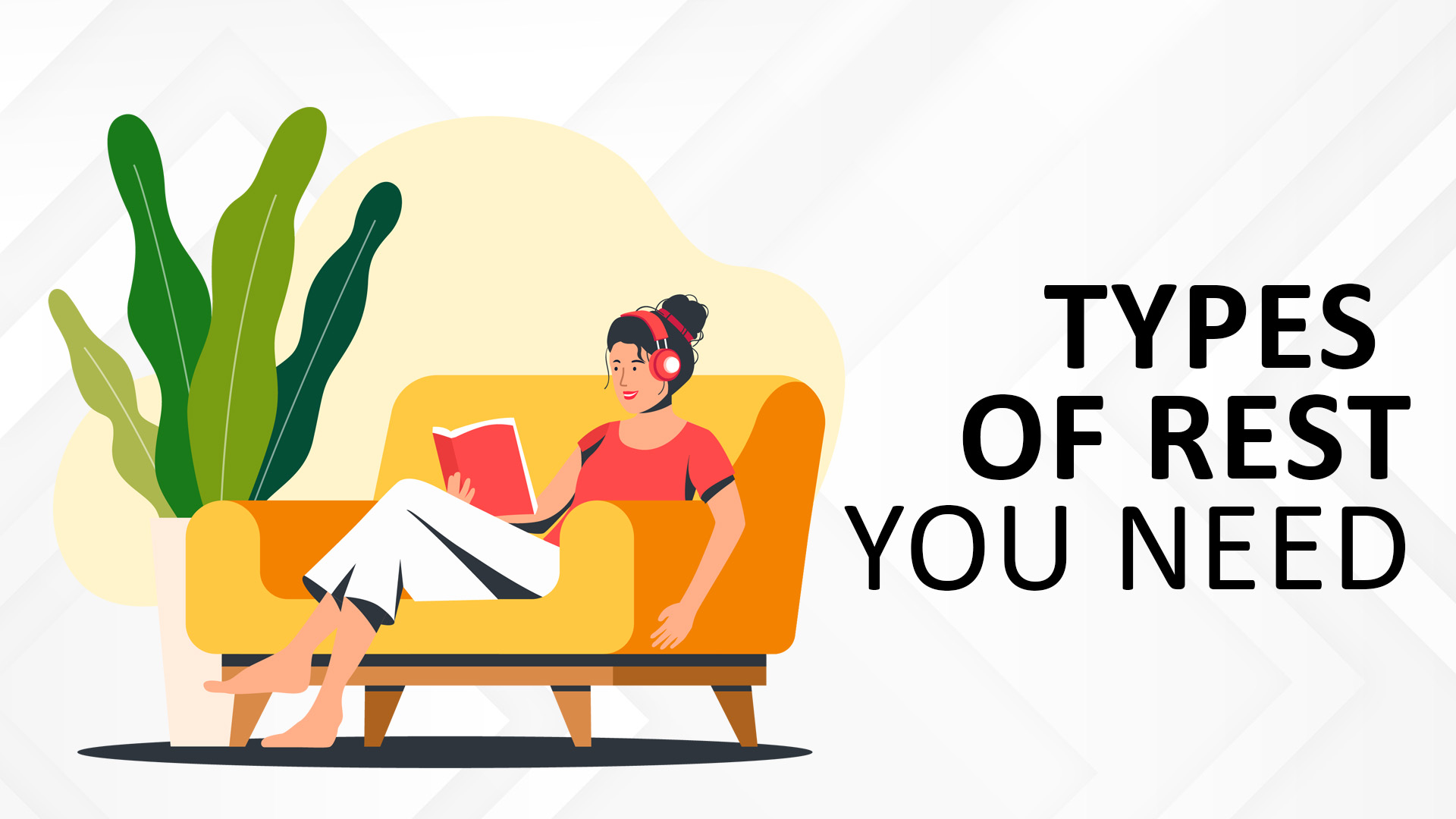We all need rest. It is physically and emotionally impossible for us to be active and productive all the time. But while we might understand the importance of sleep for the body, there are other forms of rest that are sometimes neglected. Let’s examine the seven different types of rest that might help you feel better and do better.
1. Physical rest
Physical rest is usually pretty clear-cut. It involves a break for your body and often has to do with sleeping more or taking naps. Physical rest provides a space to rest and heal from physical effort, as well as the time for your brain to prepare itself for more activity.
We require physical rest on a regular basis and can’t be productive unless we are mostly sleeping well and able to take regular breaks from physical activity. However, in addition to sleep, physical rest can also involve relaxing physical activities, like yoga or walking, as well as planning for naps and rest breaks in the middle of your workday. Make sure that you switch the type of activities you are engaged in and able to fit in different types of movement in your day.
2. Mental rest
Mental rest involves giving your mind a break from all the negative thoughts and worries that might constantly appear and reappear in your head . It offers you a space to be free and distract yourself from your daily troubles, to return to them refreshed and ready to tackle them.
What can you do to give your mind some rest?
First, you can clear it from continued thoughts through practices like mindfulness and meditation. Allow yourself to focus on something specific instead of allowing your attention to constantly return to situations and ideas that upset or worry you.
A second approach is to do something that feels calming and allows your thoughts to flow. Activities like gardening or playing a game can help your mind focus on something else and take a much-needed break by engaging in something pleasant and serene.
3. Sensory rest
We are all constantly overstimulated. We get a lot of information through our phones and other gadgets, we are constantly exposed to background noise, ads, and more sensory stimuli, like bright lights, loud music, and more. This means that our senses can also use a break.
Sensory rest involves finding quiet spaces indoors or outside, in nature. It involves putting away the phone and turning off everything that is demanding your attention. Allow yourself to disconnect from the world and put away anything that is stressing you out.
Relax your eyes and ears by avoiding noise, artificial brightness, and other similar thing. Instead, try to enjoy the natural light and let yourself spend some time in silence.
4. Emotional rest
Emotional rest allows you not to have to put on in front of other people. Find time and space to let your emotions come and go without having to suppress them or express the opposite of what you are feeling. Allow yourself to cry or feel angry, or simply take a break from the emotional roller coaster by doing calming activities.
You can find emotional rest by journaling or writing about your experiences, by making art or doing easy tasks like coloring, doodling, putting together a jigsaw puzzle, and more.
5. Social rest
People can be exhausting. At times, we also need to take breaks from socializing. This can be done in two main ways. We might pursue solitude. Rather than loneliness, solitude allows us to spend some time with ourselves and enjoy our own company. We can focus on our thoughts and experiences.
The other way is to seek someone who comforts you. Spend time with those who truly matter and take a break from shallow social interactions.
6. Spiritual rest
A spiritual rest involves you focusing more on your purpose and values. It means taking some time to pursue your faith, religion, or another spiritual practice, whether it involves prayer, meditation, volunteering, or anything else. Spiritual rest is not just for believers, either, as anyone requires some time to ponder on their purpose and their place in the world.
7. Holistic rest
Holistic rest involves combining various types of rest and addressing several needs at the same time. The different types of relaxation described above are not necessarily separate from each other, and many activities can bring you a sense of calm for the body, the mind, and the spirit. Consider which activities help you feel especially refreshed and well-rested.


